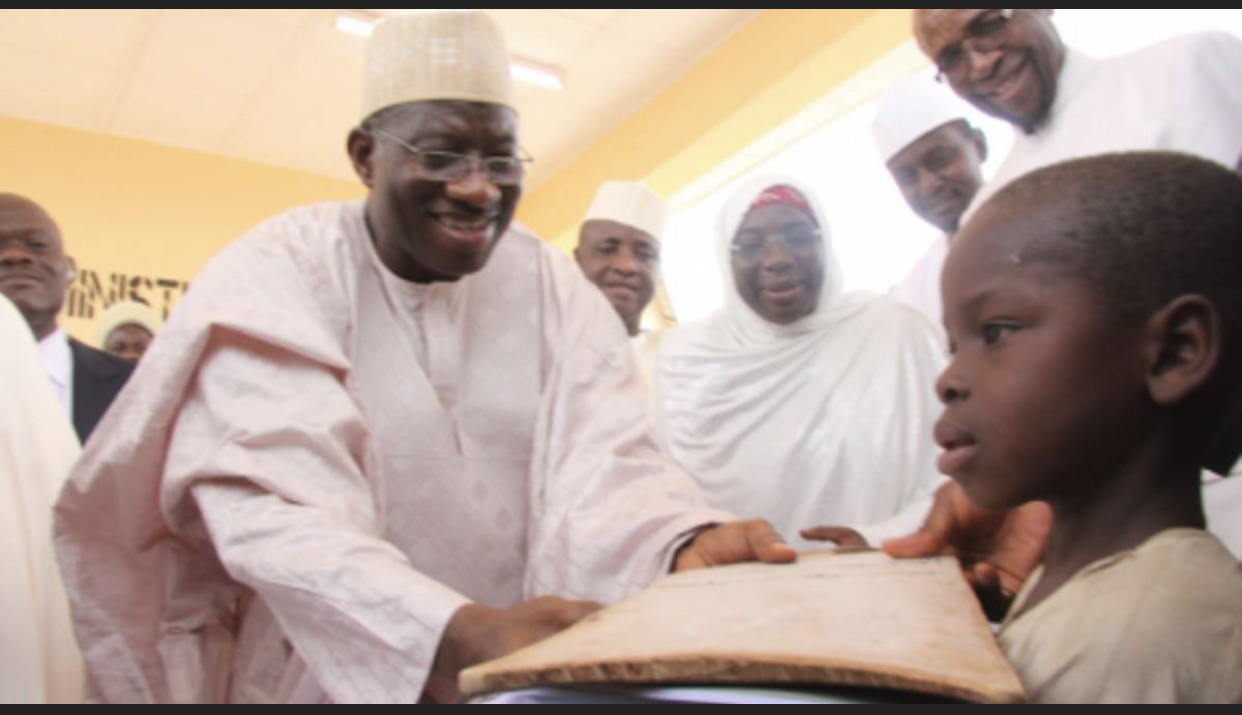Students have been deserting the Almajiri Integrated Primary Boarding Schools across Sokoto state in the last one year over acute food shortage as contractors cut supply over mounting unpaid bills, investigations by 21st CENTURY CHRONICLE, have shown.
This newspaper gathered from the schools administrators that the students are fed only twice a day (1:0:1 ration) after the contractors’ partial withdrawal of service.
This is massively affecting efforts of reducing the number of children roaming the streets, a state official who declined being named told our reporter.
There are 10 almajiri schools in Sokoto state, with the first one launched by former President Goodluck Jonathan to reduce the millions out-of-school children, who are mainly located in northwestern part of the country.
The state Government has slashed the food budgets of the schools by more than 65 percent, leaving the students hungry. Despite this massive cut, the contractors have not been paid for nearly 11 months.
In one of such schools visited by our reporter, only 60 students were around out of over 200.
Hunger driving students away – Teachers
“We have not been given enough food for the children. What we are receiving will hardly sustain us for good two weeks if we are to give them three square meal per day,” a staff of one of the schools told our correspondent in Sokoto.
“We have a population of over 200 pupils and we receive only three bags of rice, two bags of beans, seven bags of corn flour (50kg), one and a half bag of sugar and two jerry cans of vegetable oil as well as three bags of millet with N60,000 for ingredients,” the official who declined being named because he was not permitted to speak told this newspaper.
“These items hardly sustain us for two weeks but the contractor told us to manage it for a whole month because they have not been paid for months,” another official said during a visit to one of the schools.
“He told us to use one measure (mudu) of rice for 20 pupils which is not fair.
“And when we go out of stock, at times it takes more than one month before we receive another supply of the same quantity,” the official said in an emotionally-laden voice.
“This is how we have been managing the students. At times, we contribute money to buy garri for them. There was even a time, a lady that was deployed to our school under the N-Power scheme bought N5000 garri for the school.
“We are losing our students because of hunger,” another staff said.
21st CENTURY CHRONICLE reliably gathered that students resumption was delayed in most of the schools due to lack of food to feed the children.
A parent told our reporter that, “I took my children back to school two days after the announced resumption day, but to my surprise, the school was empty.
“When I made an inquiry, I was told that the resumption was delayed because there is no food to feed the children. So I brought them back,” he said.
Our reporter who randomly visited some Almajiri Integrated schools about a week after all schools had been opened, discovered that neither the staff not the students were present.
When he revisited the school few weeks after, he discovered that, only 60 students out of over 200 students resumed but a staff of the school noted that, the rest were still assisting their parents in their farms.
A headmaster of one of the schools visited inside Sokoto metropolis, refused to speak to our reporter.
Dilapidating facilities everywhere
Our reporter, however, observed that the pupils were seen studying the Holy Qur’an on a bare floor while their hostels and toilet facility are thoroughly dilapidated.
All the ceiling fans in the hostels were removed while the students sleep on plastic mats spread on double-deck beds.
However, the two blocks of classes and hostel engulfed by fire over two years ago were still not renovated.
It was also learnt that, the school clinic was virtually empty as the state government was not providing money for drugs.
Some of the students corroborating that they were not getting three square meals a day.
“We eat only twice. We eat pap (koko) and beans cake in the morning, rice or tuwo and soup in the evening,” they said.
Why contractors cut supply
This newspaper reliably gathered that, initially the Sokoto state government released N18 million every month for feeding in the 10 Almajiri Integrated schools across the state.
The money was coming from the local government joint account which was overseen by the Deputy Governor Mannir Dan’iya, who is the Commissioner for Local Government and Community Development.
It was gathered that, the money was later slashed to N6 million which has not been paid for 11 months, forcing some of the contractors to suspend supply until the government settle their outstanding payment.
The deputy governor could not be reached for comment on the story by our reporter as his phone was not accessible. His media aide was also not reachable.
Collapse of N240m boarding school
The N240 million almajiri school was built by the President Goodluck Jonathan administration in 2012.

During the commissioning ceremony, Jonathan said the Almajiri Model Boarding Primary school was in fulfillment of his campaign promise to northern states to modernise the Almajiri system by integrating it into the conventional system of education, with a view to providing education to all children who were of school age in the country.
He said the sacrifice made by his government in modernising the Almajiri system of education was as a result of the belief that no nation could prosper if its youths were neglected.
Jonathan said he was disturbed over the presence of about 10 million almajiri on the streets of major cities and towns whose parents lacked interest in conventional education thereby making things worse for the country.
Also speaking at the ceremony, the Sultan of Sokoto, Muhammad Sa’ad Abubakar, said the gesture of the Federal Government was a step in the right direction.
He said: “This has gone a long way in providing succour to the teeming millions roaming the streets.”
The Sultan promised to mobilise the various communities in the state for an effective role in the mobilisation of almajiri.
Schools should be community driven – Don
Professor Tukur Baba of the Department of Sociology of Usman Danfodiyo University Sokoto, who said he had visited Almajiri Model school in Gagi, recently described its situation as very sad.
“My assessment of the situation of the school is that of sadness, a profound sadness. A very laudable programme hes been allowed to rot and you cry for this country.
“It reminds me, this thing is not just a question of putting physical structures and making announcement. It is a question of value reorientation in the mind of policy makers and those implementing and that of the community. There has to be continuity and commitment to the success of the programme. When I looked at the school I nearly shed tears,” he said.
Professor Baba, however, proffered ways of addressing the problem, saying “we have to go back to the drawing board.”
“We have to get people who are committed. We have to get qualified personnel.
“I think the whole concept of Almajiri school should be community driven. Community should initiate and the government only support. So that the running, management and administration of the school will be community driven,” he said.
Our plans for almajiri schools – Tambuwal
Governor Aminu Waziri Tambuwal said the state would adopt the Indonesian Pondok Pesantren Madrasah system of education to address the almajiri challenge in the state.
He dropped the hint when he received the Indonesian Ambassador to Nigeria, AVM Usra General Harahap, during a courtesy visit recently at the Government House, Sokoto.

The governor explained that for the state government to have a homegrown system similar to the Pondok system, it would consult the Sultan of Sokoto and other stakeholders for their advice.
Tambuwal added that his administration was not in a hurry to ban the Almajiri system as some states in the north had done without providing an alternative.
The governor’s reservations were contained in a statement issued by his Special Adviser on Media and Publicity, Muhammad Bello.
According to the aide, the governor expressed confidence that the Pondok example “could serve as an alternative to the Almajiri system.”
“We are intensifying efforts to ensure that the Pondok model is adopted before banning the Almajiri system. This is because we are desirous of ensuring that Sokoto children are exposed to both western and Islamic education,” Tambuwal stated.









